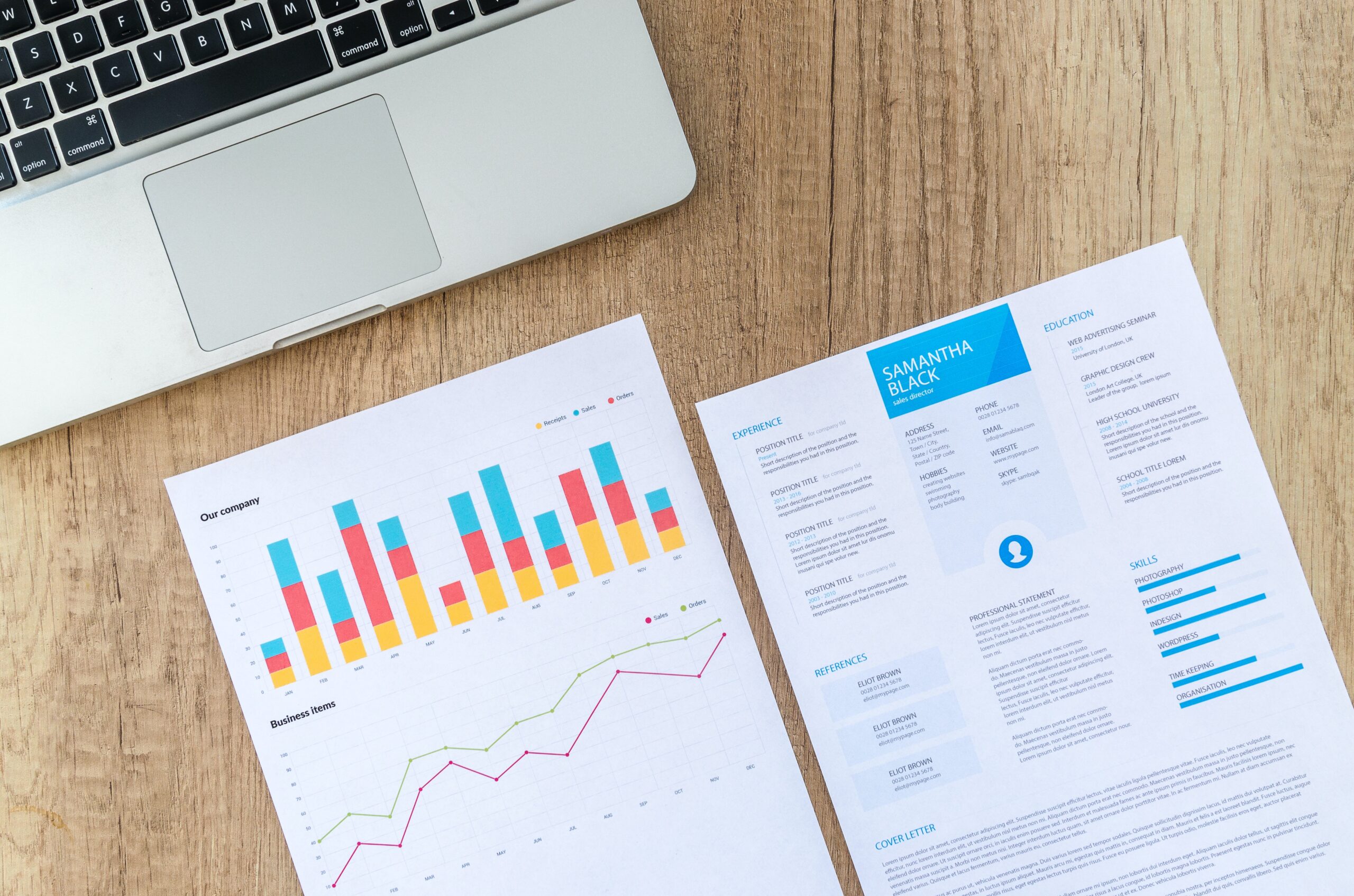Welcome to the world of big data! The term may seem daunting, but the insights and innovations that come from analyzing it are invaluable for businesses. In today’s digital age, data is generated at an exponential rate, providing endless opportunities for organizations to gain a competitive advantage through better decision-making. Big Data has become a crucial tool in business analytics as it helps companies uncover hidden patterns, identify trends and make informed decisions based on real-time information. So let’s dive deep into how big data is transforming business analytics and driving new levels of innovation!
Introduction to Big Data and Business Analytics
Businesses today are swimming in a sea of data. Big data is defined as high-volume, high-velocity and/or high-variety information assets that require new forms of processing to enable enhanced decision making, insights and process automation. Business analytics is the application of big data for business decision making.
The goal of business analytics is to turn data into insights that can be used to make better decisions. By analyzing large amounts of data, businesses can identify patterns and trends that would otherwise be hidden. This allows businesses to make more informed decisions, improve operations and find new opportunities for growth.
Big data and business analytics are transforming the way businesses operate. In the past, business decisions were based on limited amounts of data that was often outdated by the time it was analyzed. Today, with the advent of big data, businesses have access to real-time data that can be used to make informed decisions.
Businesses are using big data and business analytics to improve customer service, target marketing efforts, optimize operations and create new products and services. The possibilities are endless for how big data and business analytics can be used to transform your business.
Benefits of Using Big Data in Business Analytics
There are many benefits of using big data in business analytics. With the help of big data, businesses can gain insights into their customers’ behavior, preferences, and needs. This allows businesses to develop targeted marketing campaigns and personalized products and services that meet their customers’ specific needs. Additionally, big data can help businesses identify new opportunities for growth and expansion. For example, by analyzing customer data, businesses may be able to identify new markets to enter or new product categories to explore. Big data can also help businesses improve their operational efficiency and reduce costs. For instance, by analyzing production data, businesses may be able to identify bottlenecks in their manufacturing process and take steps to address them.
Challenges in using Big Data
The volume and complexity of data is growing at an exponential rate, making it difficult for businesses to keep up. The challenge for businesses is not only to collect data, but to make sense of it and turn it into insights that can drive innovation and growth.
Big data has the potential to help businesses gain a competitive edge, but only if they can harness it effectively. The key challenges in using big data are:
1. storing and managing large volumes of data;
2. extracting value from big data; and
3. dealing with privacy and security concerns.
1. Storing and managing large volumes of data: The first challenge businesses face is simply storing all the data they collect. Traditional relational databases are not designed to handle big data, so companies need to invest in new technologies such as Hadoop or NoSQL databases. They also need to have the right infrastructure in place to support these systems, which can be costly.
2. Extracting value from big data: Even if businesses can store all their data, they still need to be able to analyze it and extract valuable insights from it. This requires having the right tools and skills in place. Data scientists are in high demand, but there is a shortage of qualified candidates. Companies also need to invest in self-service analytics tools so that more employees can access and analyze big data without needing specialized skills.
3. Dealing with privacy and security concerns: Big data raises significant privacy and
How Businesses are Implementing Big Data Analytics
The field of business analytics is rapidly evolving, and big data is playing a major role in driving this change. Businesses are increasingly turning to big data analytics to gain insights into their customers, operations, and financials. By harnessing the power of big data, businesses can gain a competitive edge and make better decisions that lead to improved outcomes.
There are many ways businesses can implement big data analytics. Some common methods include using data mining techniques to uncover patterns and trends, utilizing predictive analytics to forecast future events, and using social media data to track and analyze customer sentiment. Big data analytics can also be used to improve marketing campaigns, target new customers, and optimize pricing strategies.
With so many potential applications, it’s no wonder that businesses are eager to adopt big data analytics. However, there are some challenges that need to be addressed before businesses can fully realize the benefits of this technology. First, businesses need to have the right infrastructure in place to support big data analytics. Second, they need access to quality data sets that are relevant to their business goals. They need skilled analysts who know how to extract insights from large data sets.
Despite these challenges, businesses are making significant progress in implementing big data analytics. In fact, many organizations are now using big data analytics to improve decision making across all areas of their business. As the field of business analytics continues to evolve, we can expect even more innovative uses of big data to emerge.
Examples of Companies Using Big Data Analytics
There are a number of companies that have been able to harness the power of big data to drive insights and innovation. Some of these companies include:
– Amazon: Amazon has been able to use big data to improve its customer recommendations, as well as its inventory management and forecasting.
– Facebook: Facebook uses big data to help target ads more effectively and also to understand how users are interacting with the site.
– Google: Google uses big data for a variety of purposes, including improving search results, understanding user behavior, and targeted advertising.
– Netflix: Netflix uses big data to personalize the user experience, recommend movies and TV shows, and track viewing habits.
Predictive Analysis and Machine Learning with Big Data
Predictive analysis and machine learning are two of the most popular applications of big data. By harnessing the power of big data, businesses can gain insights into customer behavior, trends, and patterns. Machine learning can be used to predict what customers will want or need in the future, and businesses can use this information to make better decisions about product development, marketing, and operations. Big data also provides a wealth of info
Strategies for Leveraging Big Data in your Business
The digital age has given rise to big data, and organizations are struggling to keep pace. In order to stay competitive, it’s critical that businesses leverage big data in their decision-making.
There are a number of ways to leverage big data, but the most important thing is to have a clear strategy. Here are a few tips:
1. Know your goals. What do you want to achieve with big data? Be specific and set measurable objectives.
2. Define your target audience. Who do you want to reach with your big data insights? Conduct market research to segment your audience and identify their needs.
3. Collect the right data. Not all data is created equal. Make sure you’re collecting accurate, actionable data that will help you achieve your goals.
4. Analyze the data. Once you have collected the right data, it’s time to put it to work. Use analytics tools to uncover trends and insights that can help inform your decision-making process.
5. Communicate your findings. Insights from big data are only valuable if they’re shared with the relevant stakeholders in an easily digestible format. Present your findings in a way that will prompt meaningful discussion and actionable decisions
Conclusion
Big data has revolutionized the way businesses operate, giving them direct insights into their customers and markets that they have never had before. With tools such as machine learning and artificial intelligence, companies can make more informed decisions than ever before, allowing them to gain a competitive edge in the market. By taking advantage of big data analytics, businesses can drive innovation and improve customer engagement while increasing efficiency and reducing costs.










